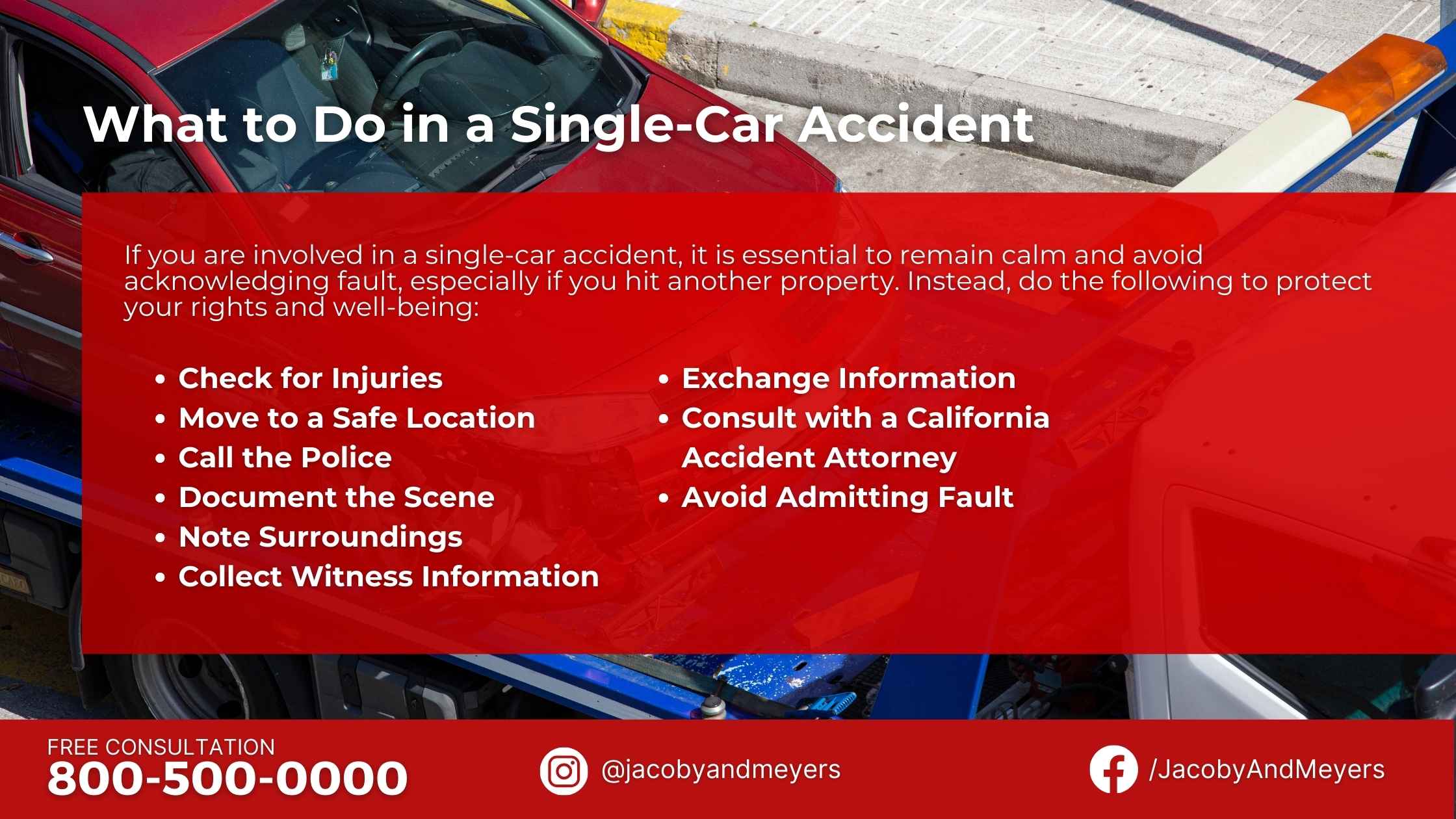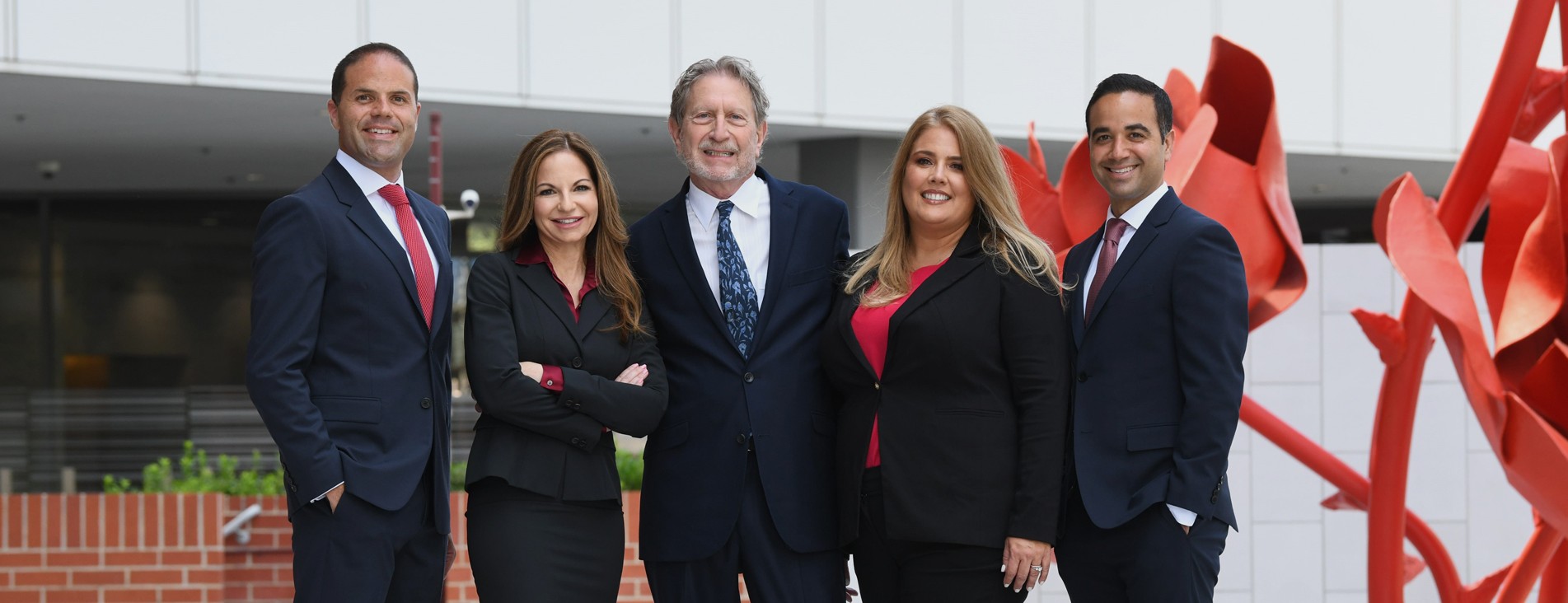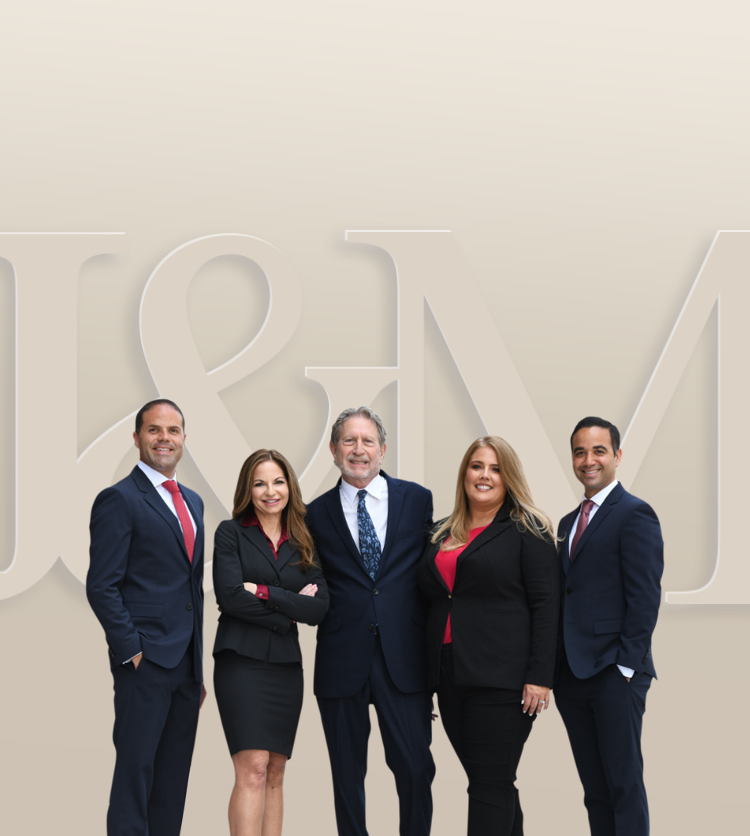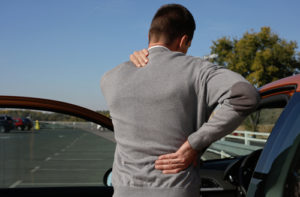Most drivers involved in single-car accidents think they are automatically at fault for the damages. While this is usually true, there are instances where other entities may be responsible for the collision, such as when an uneven road causes you to crash.
If you are involved in a single-car accident in California, it is crucial to understand your rights in such cases and know when you are and are not liable for the damages.
What Is a Single-Car Accident?
A single-car accident refers to crashes involving only one vehicle. In such instances, only the drivers or passengers in the sole vehicle incur injuries and damages. However, accidents involving a car and pedestrians or cyclists are sometimes also called single-car crashes.
Single-car accidents can happen due to several reasons, including:
- Driver Errors: distracted driving, speeding, drowsy driving, and driving under the influence can all cause single-car accidents. These errors make it easier for drivers to lose attention and control over their vehicles, resulting in collisions.
- Poor Road Conditions: Poor road conditions, such as slippery roads, potholes, or road debris, can make it challenging for drivers to maneuver effectively and may result in a crash.
- Vehicle Malfunctions: Sometimes, malfunctions on the vehicle, such as when poorly maintained or the company releases a defective product, can cause auto crashes.
- Avoiding Animals: Drivers swerving to avoid animals on the road—like deer or dogs—can unintentionally veer off course or into other hazards.
- Weather Conditions: Low visibility and slippery surfaces from the weather can cause drivers to misjudge distances or lose traction, increasing the likelihood of an accident.
- Medical Emergencies: A driver experiencing a medical emergency, such as a heart attack or seizure, can suddenly lose control of the vehicle.
- Avoiding Another Vehicle: In an attempt to dodge a speeding car or one merging incorrectly, drivers might swerve suddenly, risking losing control.

What to Do in a Single-Car Accident
If you are involved in a single-car accident, it is essential to remain calm and avoid acknowledging fault, especially if you hit another property. Instead, do the following to protect your rights and well-being:
- Check for Injuries: Check yourself and your passengers for any injuries. If anyone is hurt, don’t hesitate to call 911 for medical help.
- Move to a Safe Location: If your vehicle is in an unsafe position—like in the middle of the road or near a dangerous curve—try to move it to the shoulder or a safer area if it’s safe to do so. Remember to turn on your hazard lights to warn other drivers.
- Call the Police: Regardless of whether it’s a single-car accident, it’s crucial to inform the police, especially if there are injuries or notable damage. They’ll create a report that documents the scene, which can be vital for your claim.
- Document the Scene: Take photos or videos of the accident scene, including your vehicle, road conditions (like potholes or skid marks), and other important details.
- Note Surroundings: Write down essential information such as the time, location, weather conditions, and anything else that might have contributed to the accident, like a sharp turn or debris on the road.
- Collect Witness Information: If there are witnesses, gather their contact information and ask if they’d be willing to share a statement.
- Exchange Information: If another party or property is involved, such as if you hit a fence or any other object, find the property owner and exchange contact and insurance details.
- Consult with a California Accident Attorney: If there are significant damages or injuries, or if you suspect another party may share some liability, it is best to contact a personal injury attorney. They can help you gather evidence, negotiate with insurance companies, and determine if you may be entitled to additional compensation.
- Avoid Admitting Fault: While cooperating with the police is essential, be cautious about admitting fault or making definitive comments about what caused the accident until a thorough investigation is complete. External factors such as road conditions or mechanical failures can contribute to single-car accidents.
Who Is Liable in a Single Car Accident?
Most people think the driver who crashes in a single-car wreck is automatically at fault. However, this is not always the case. Other parties can sometimes be responsible for the collision, depending on specific circumstances.
Single-Car Accident Due to Your Actions
You, the driver, can be responsible for your damages if your actions led to the crash. Similarly, you are also accountable for the expenses of any property damage you make if you crash into private property or any other objects that aren’t yours.
Usually, driver errors cause single-car accidents. If you are guilty of the following acts before the collision occurred, you may be liable for the damages:
- Speeding
- Drunk driving
- Distracted driving
- Drowsy driving
- Tailgating
- Other traffic violations
Did you know that according to Forbes, driving under the influence and speeding were two of the top causes of deadly accidents in 2022, resulting in 13,524 and 12,151 road deaths, respectively. Distracted driving was another major contributor, with 3,308 fatal crashes linked to drivers losing focus on the road.
When driving, you must always keep your focus on the road, anticipate any risks, and avoid committing traffic violations to prevent single-car accidents. Remember, when your actions lead to the crash, you are entirely responsible for the damages expenses resulting from it.
Single-Car Accident Due to Weather and Poor Road Conditions
Liability in single-car accidents caused by weather can be tricky. If your actions cause an accident despite bad weather, you can be responsible for the damages.
According to California Vehicle Code 22350, drivers must adjust their speed based on road conditions, considering weather, visibility, and traffic factors to ensure safe driving.
Suppose your speed was under the speed limit while driving on a slippery road due to the rain. However, the speed limit was too high, and you went at 70 mph. As a result, you crashed into a barrier. In this case, your insurance provider may insist that you should have adjusted your speed based on the weather conditions. If the court agrees, you may need to shoulder your expenses.
However, other entities may be accountable if other factors caused the single-car accident. Poor road conditions can sometimes lead to car collisions, especially when the road has defects that are difficult to spot, particularly in bad weather. These defects may include:
- Potholes
- Missing barriers
- Unclear road signs
- Defective traffic signals
- Unexpected road modifications and other hazards.
If such factors contribute to your car accident, you may be able to file a claim against the local government responsible for maintaining the road.
However, note that you have only six months from the accident date to file your claim. This short window leaves little time for decision-making, so avoiding actions that could jeopardize your case is crucial. It’s best to seek the help of a car accident attorney experienced in filing claims against local governments to manage your case throughout the process.
Single-Car Accident Due to Faulty Vehicle Part
A single-car wreck can occur because of a faulty vehicle part, leading the driver to lose control of the vehicle. If a critical component fails—such as the brakes, tires, or steering system—it can cause a collision, regardless of how cautiously the driver is operating the vehicle.
You are responsible if you did not maintain your vehicle, resulting in the crash. However, if maintenance personnel weren’t able to fix any significant parts of the car, and this caused the accident, the maintenance company is accountable for the damages. Moreover, if you use a new vehicle with defects, the manufacturer or company may be liable for your damages.
Depending on the circumstances, several parties can be liable for your single-car accident. Unfortunately, ruling out all these factors can be challenging, especially if you are still recovering from the crash. An auto accident lawyer can handle your case by gathering evidence, determining liability, and negotiating with an insurance provider so that you receive fair compensation while focusing on your recovery.
Lawyer’s Tip: The Sudden Medical Emergency Doctrine states that a driver is not liable for an accident if an unexpected medical emergency occurs, rendering them unable to control the vehicle. If you are involved in an accident due to a medical emergency, such as when you experience a heart attack, you may be free of liability in such cases.
Will My Car Insurance Cover Me for My Single Vehicle Accident?
Whether your car insurance will cover your damages depends on the coverage you have and the circumstances related to the crash.
If other parties are liable for the crash, their insurance provider should pay your damage expenses. In such an instance, you must file a car accident claim and prove that their actions or inactions resulted in the crash and your injuries before they accept liability.
However, if you are responsible for the car accident, a standard car insurance policy will not cover your injuries sustained in a single-vehicle accident unless you have specific coverage options, such as the following:
- Personal Injury Protection (PIP) or Medical Payments (MedPay): These types of coverage can help cover your medical expenses after a single-car accident, regardless of fault. They are optional add-ons to your auto insurance policy, and having them can significantly ease the financial burden of medical bills related to the accident.
- Collision Coverage: This insurance helps pay for damage to your vehicle resulting from a single-car accident. Note that collision coverage typically does not cover personal injuries; its primary focus is repairing or replacing your car.
- Health Insurance: If your auto insurance does not cover your injuries, your health insurance may help cover the costs associated with medical treatments. Health insurance can provide additional financial protection for medical expenses incurred due to an accident.
If you’ve been in a single-car accident, reviewing your insurance policy and assessing your coverage is crucial to ensure that you’re adequately protected in case of injuries. If you hire a personal injury lawyer, they will check all your insurance coverage and determine the best legal steps suitable to your situation.
Does a Single-Car Accident Raise My Insurance?
In a single-car accident, the insurance company usually considers you at fault since no other drivers are involved. As a result, at-fault accidents can often increase your insurance premiums, as insurers perceive you as a higher risk. However, if you can prove that you are not at fault for the crash, your insurance won’t likely increase.
Furthermore, certain insurance companies provide accident forgiveness programs that can help keep your premiums from increasing after your first accident. However, the availability of this feature depends on the specific terms of your policy and may require you to have a solid driving record.
When Can I Leave the Scene of a Single-Car Accident?
Generally, you can only leave an accident scene if you have reported it to the authorities and they have concluded the investigation. Remember that in California, you are not required to report all accidents to the police. According to the Department of Motor Vehicles (DMV), a car accident does not need to be reported if:
- The property damage is less than $1,000.
- No bodily injuries occurred.
However, it becomes illegal not to report a car accident to the police under the following circumstances:
- The property damage is $1,000 or more.
- The accident involves a hit-and-run.
- The crash results in bodily injuries.
- The accident causes a **wrongful death.
So, if you hit a pedestrian or cyclist in a single-vehicle crash, you must report the accident immediately to the police and cooperate with the investigation.
What Happens If I’m Partially Liable for the Single-Vehicle Accident?
California follows a pure comparative fault system. This means that even if you share some responsibility for an accident, you can still file an injury claim. For example, if you’re found to be 20% at fault for an accident, you could receive compensation for 80% of the total damages, while the other party could claim 20% for their losses.
Determining the exact compensation you should receive can be complex. How do you ensure that your compensation reflects that 80%?That’s where the expertise of a California car accident attorney can make a real difference. They can help assess the total damages related to your accident, calculate the amount you should reasonably expect based on your level of fault, and negotiate with the insurance provider on your behalf. This way, you can feel confident that you’re getting a fair settlement for your injuries and losses.
Do I Need a California Accident Attorney for a Single Accident Claim?
Depending on the details of your situation, liability in a single-car accident may be shared among multiple parties. This can complicate the situation, particularly if you’re still recovering from the accident.
This is where an auto accident lawyer becomes beneficial. They manage your case- from collecting the necessary evidence to handling negotiations with insurance companies on your behalf. This allows you to focus on your recovery while ensuring you receive fair compensation for your injuries and damages.
If you hire our California accident attorney, expect that they will do the following for you:
- Collecting Crucial Evidence: We meticulously analyze all available evidence, including witness statements, police reports, medical records, and accident scene details, to build a strong case on your behalf.
- Proving Liability: Our legal team conducts a comprehensive investigation to identify the negligent party and build a compelling case to establish their liability.
- Evaluating Total Damages: We ensure that no cost is overlooked by assessing the full extent of your damages, including medical expenses, lost wages, pain and suffering, property damage, and any other applicable costs.
- Negotiating with Insurance Companies: Insurance companies often try to minimize payouts. Our skilled negotiators will fight to secure the compensation you deserve.
- Representing You in Court: If a fair settlement cannot be reached through negotiation, we are fully prepared to take your case to court and aggressively defend your rights.
If you are looking for an experienced California car attorney to defend your rights, Jacoby & Meyers is here for you. Our dedication goes beyond securing substantial settlements. We focus on ensuring access to essential medical care while maintaining transparent communication and strong legal support throughout your case.
Contact our personal injury lawyers for personalized legal guidance by scheduling a free consultation today at 800-500-0000.
Hear From Our Past Clients
While many law firms make similar claims, we firmly believe we can give our clients a solid legal defense. As a result, we encourage prior clients to share their positive experiences.
“Karen Samberg made my journey so effortlessly easy. She was the best person to handle my case and was very helpful at every step. For any question or concern I had, she responded quickly and with the most detailed answer.” – Janira L.
Frequently Asked Questions
Do you have further questions regarding personal injury claims? We got you! Here are some frequently asked questions from injured auto accident victims that may help explain some aspects of your case.
- Can I File a Claim If I’m a Passenger in a Car Accident Caused by a Family Member?
- Car Accident in California: What to Do If a Driver Refuses to Give Insurance Information
- California Car Accidents Due to Medical Emergency: Who Is Liable?
- Step-by-Step Guide to Reporting a Car Accident in California
Works Cited
Bieber, Christy, and Jeffrey Johnson. “Car Accident Statistics For 2024 – Forbes Advisor.” Forbes, 30 July 2024. Accessed 17 October 2024.
“California Vehicle Code 22350.” California Legislative Information.
“comparative negligence | Wex | US Law | LII / Legal Information Institute.” Law.Cornell.Edu. Accessed 17 October 2024.
“emergency doctrine | Wex | US Law | LII / Legal Information Institute.” Law.Cornell.Edu. Accessed 17 October 2024.
“Guide to insurance company accident forgiveness programs.” Carinsurance.com.
“Vehicle Collisions.” California DMV. Accessed 17 October 2024.
Call or text 888-522-6291 or complete a Free Case Evaluation form








